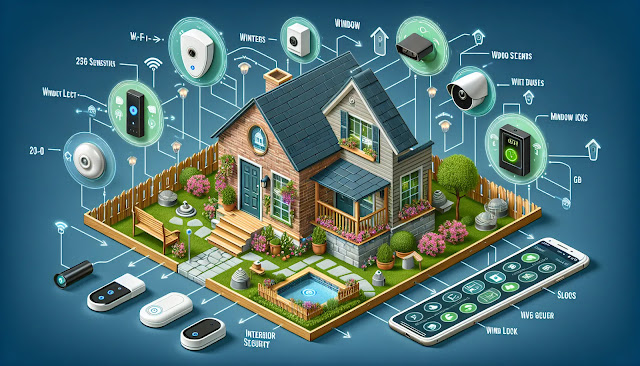How Wearable Technology May Be Negatively Affecting Mental Health in Fitness Enthusiasts
Wearable Technology Mental Health
In today's technologically advanced world, wearable devices have become increasingly popular, particularly among fitness enthusiasts. These devices, such as fitness trackers, smartwatches, and heart rate monitors, provide users with valuable data and insights about their physical activity and overall health. While wearable technology offers numerous benefits, there is growing concern about its potential negative impact on mental health.
Mental Health Risks of Wearable Tech
Despite the positive aspects of wearable technology, there are several mental health risks associated with its use. One of the primary concerns is the obsession with data and self-tracking that can develop among fitness enthusiasts. Constantly monitoring and analyzing data can lead to increased stress, anxiety, and even obsessive-compulsive tendencies. Individuals may become fixated on reaching certain fitness goals, such as achieving a specific number of steps or burning a set amount of calories, which can become detrimental to their mental well-being.
Moreover, the constant comparison to others that wearable technology enables can also contribute to feelings of inadequacy and low self-esteem. Social media platforms and fitness apps often provide opportunities for users to share their achievements, which can create a sense of competition and pressure to measure up to others. This can lead to negative self-comparisons and feelings of inadequacy, ultimately impacting mental health negatively.
👰 Psychological Impact of Wearable Devices
The psychological impact of wearable devices extends beyond the realm of comparison and self-esteem. Many individuals may become overly reliant on these devices for validation and personal worth. The continuous monitoring of health and fitness metrics can create a sense of dependence, where individuals believe that their worth is tied to their ability to meet certain goals and targets set by their wearable technology.
This dependence on wearable devices can also lead to a disconnect from one's own body and natural cues. Instead of listening to their bodies and understanding their needs intuitively, individuals may rely solely on the data provided by their devices. This can lead to a loss of self-awareness and a strained relationship with one's physical and mental well-being.
Furthermore, the constant notifications and alerts that come with wearable technology can also contribute to increased stress levels. Individuals may feel overwhelmed by the constant bombardment of information and reminders, which can hinder their ability to truly relax and unwind. The need to always be "plugged in" and connected to one's device can create a sense of anxiety and a constant state of being "on edge."
Strategies for Maintaining Mental Health
While the negative impact of wearable technology on mental health is a cause for concern, there are several strategies that individuals can employ to mitigate these risks:
- Set Boundaries: It is important to establish limits and boundaries when it comes to using wearable devices. Designate specific times in the day to engage with the technology and make a conscious effort to disconnect during other times, allowing for periods of uninterrupted relaxation.
- Embrace Intuitive Tracking: Instead of relying solely on the data provided by wearable devices, learn to listen to your body's natural cues. Pay attention to how you feel physically and emotionally, and use that as a guide for your health and fitness journey.
- Prioritize Self-Care: Make self-care a priority in your daily routine. Engage in activities that promote relaxation, reduce stress, and enhance your overall well-being. This can include practices such as meditation, yoga, or spending time in nature.
- Foster Real Connections: While social media can contribute to feelings of inadequacy, it can also be a valuable tool for building genuine connections. Seek out online communities that prioritize support, encouragement, and positivity instead of comparison.
- Seek Professional Help: If you find that your use of wearable technology is significantly impacting your mental health and well-being, consider reaching out to a mental health professional for guidance and support. They can help you navigate the challenges and develop a healthier relationship with technology.
It is essential to strike a balance between utilizing wearable technology for its benefits and safeguarding your mental health. By being mindful of the potential risks and implementing strategies to mitigate them, you can maintain a positive and healthy relationship with wearable devices.






